June 18, 2025
Contributor: Supriyono | Editor: Dadi Darmadi | Photo: Achmad Jatnika & Sarah Permatasari
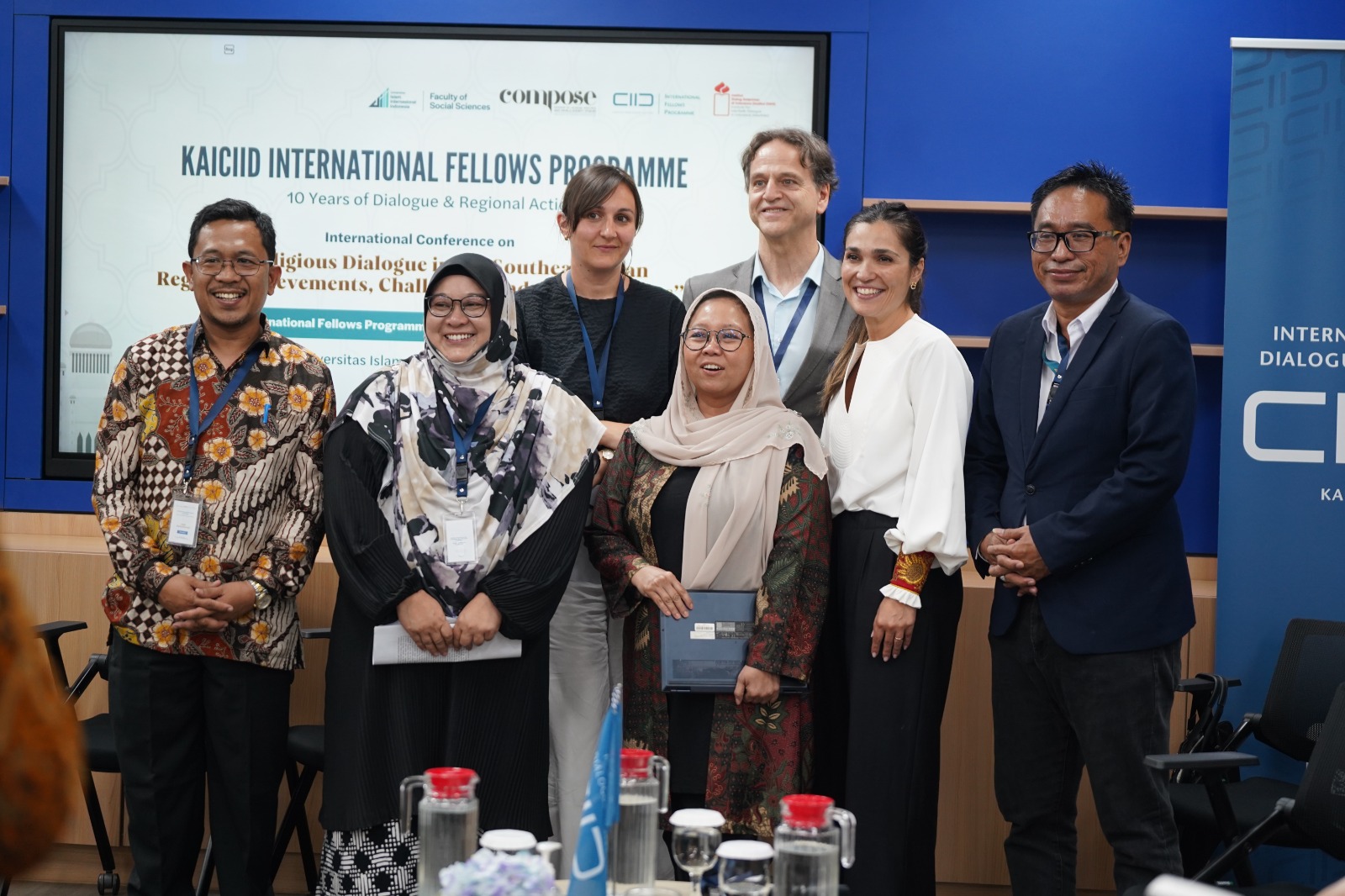
Marking a decade of commitment to fostering interfaith understanding and peaceful coexistence, the International Conference on “Interreligious Dialogue in Southeast Asian Region: Achievements, Challenges, and Opportunities” was successfully held at Universitas Islam Internasional Indonesia (UIII) on June 17, 2025. The event was part of the regional celebration of the KAICIID International Fellows Program’s 10th anniversary, under the theme “10 Years of Dialogue & Regional Action.”
Jointly organized by the Center for Muslim Politics and World Society (COMPOSE) at UIII’s Faculty of Social Sciences (FOSS), the KAICIID International Programme, and Institut Dian Yogyakarta, the conference brought together alumni and practitioners from across Southeast Asia—including Indonesia, Malaysia, the Philippines, Thailand, Brunei, and Singapore—as well as international guests from Portugal and Canada.
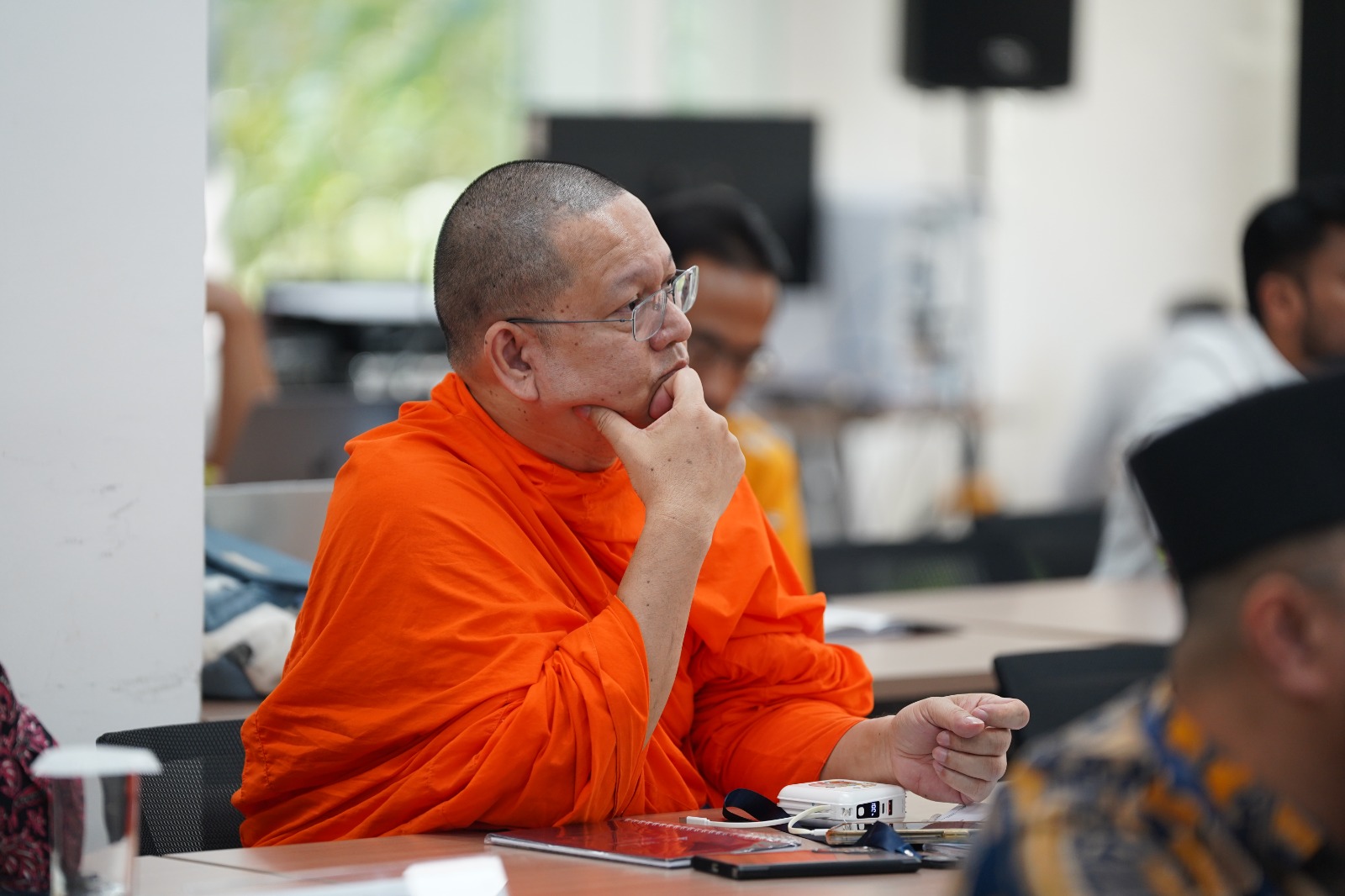
KAICIID, stands for the King Abdullah bin Abdulaziz International Centre for Interreligious and Intercultural Dialogue, is an intergovernmental organization established in 2012 with the support of Saudi Arabia, Austria and Spain, with the Holy See as a founding observer. Its mission is to foster dialogue between people of different religious and cultural backgrounds, with the aim of promoting mutual understanding, respect, and peaceful coexistence.
Supported by the 2024 KAICIID Micro Grant, this regional gathering highlighted the progress and impact of interreligious dialogue (IRD) initiatives in countries often challenged by ethno-religious tensions. The event served as a platform for reflection, dialogue, and knowledge-sharing among scholars, policymakers, activists, and faith-based leaders.
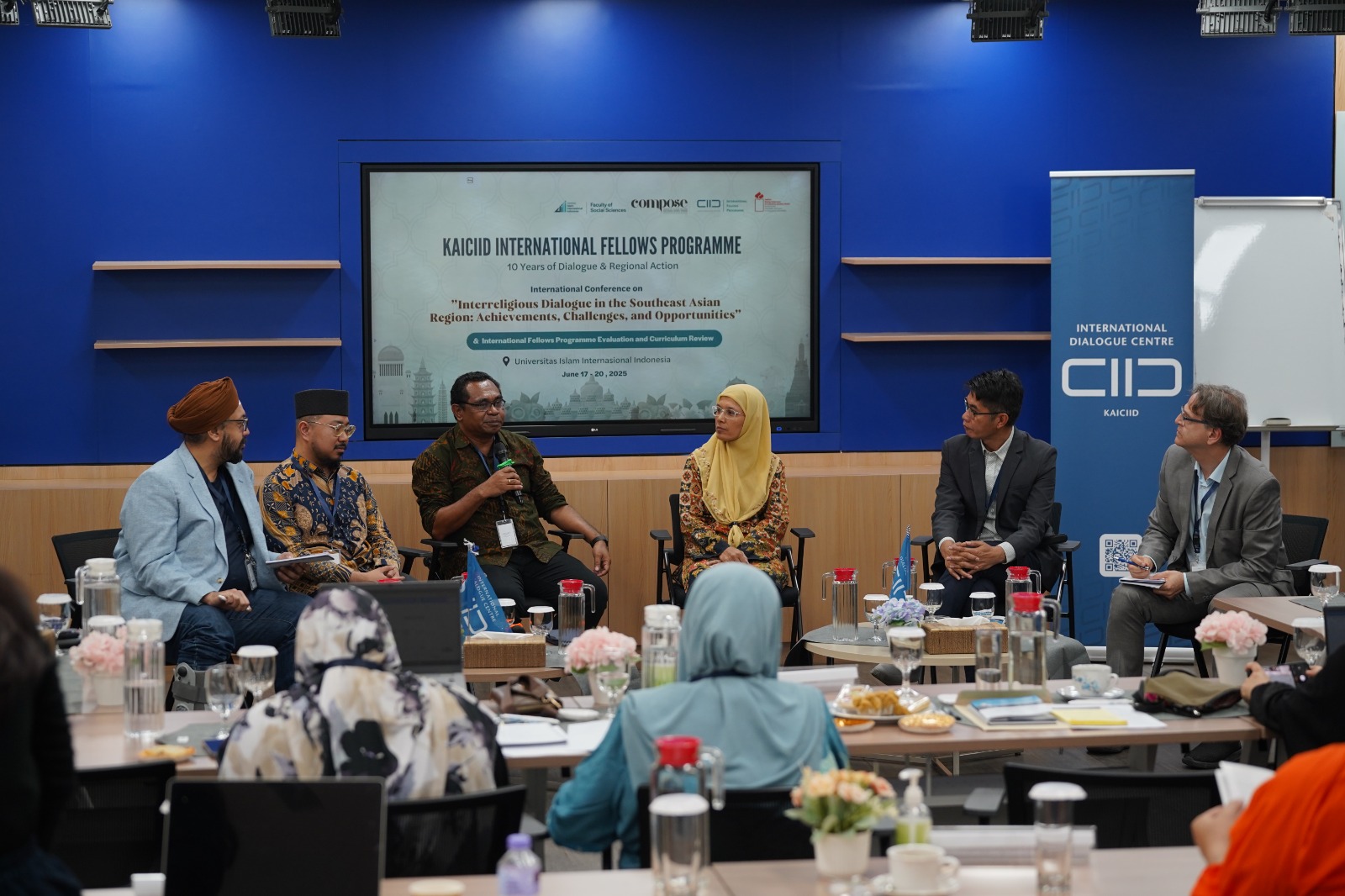
“It is with great enthusiasm and anticipation that we extend our warmest gratitude to everyone involved in this important conference,” said Dr. Ridwan, Director of COMPOSE and the event’s convenor. “As we reflect on 10 years of the KAICIID Fellows Program in Southeast Asia, this gathering is not only a celebration but also a serious effort to examine the depth of achievements, persisting challenges, and untapped opportunities for interreligious dialogue in our region.”
A distinctive feature of the event was the strong presence of KAICIID Fellows alumni, whose contributions have been instrumental in shaping interreligious initiatives across the region over the past decade. Throughout the day, participants engaged in panel discussions, case study presentations, and collaborative dialogues exploring how IRD contributes to building inclusive societies, particularly in regions marked by religious diversity and historical conflict. The conference also highlighted best practices and innovations from across Southeast Asia.
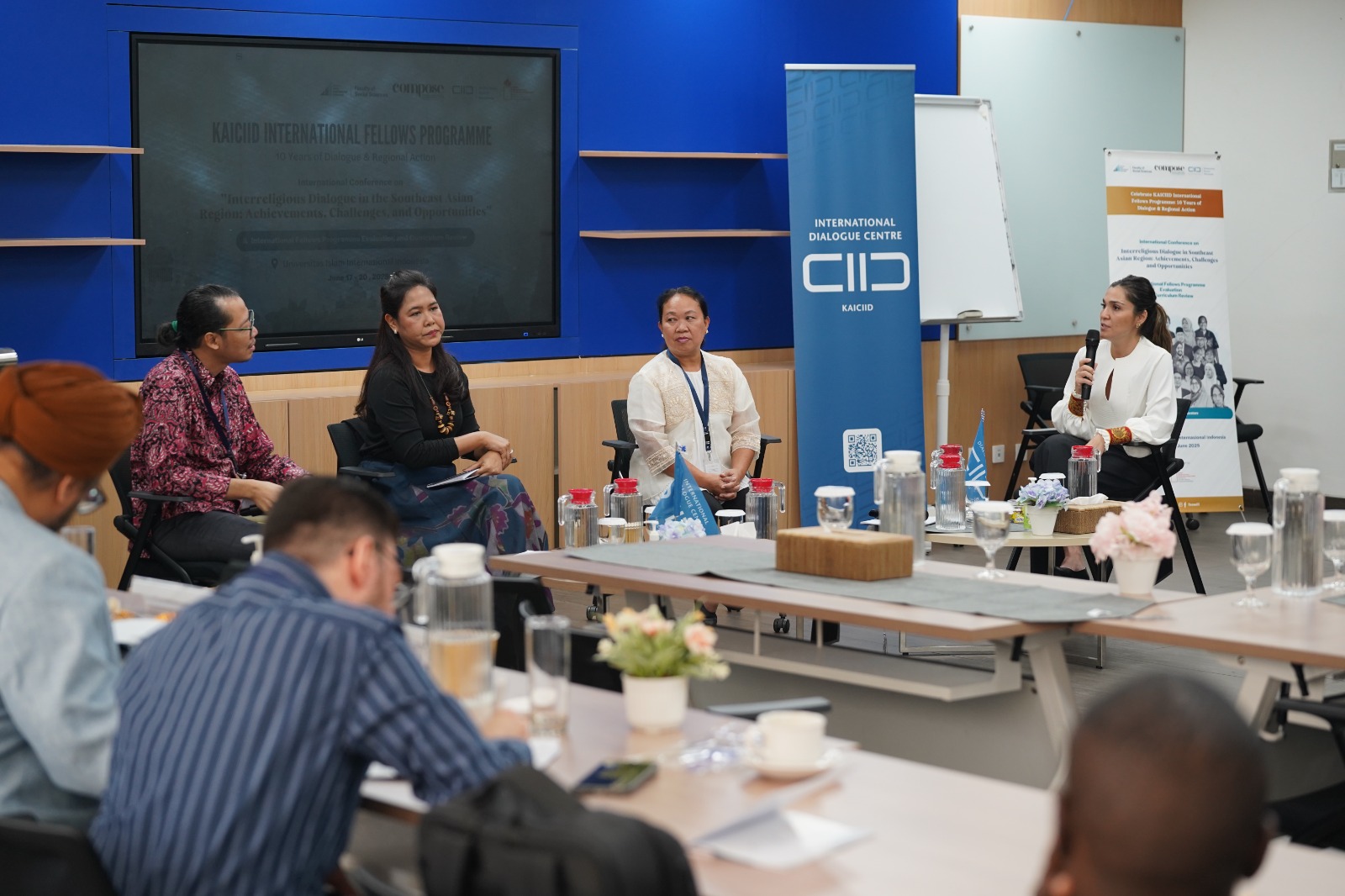
Mitra Modaressi, Senior Programme Manager at KAICIID, highlighted the urgency and impact of the work done by the Fellows and their communities. “This is not only a celebration of 10 years of the KAICIID International Fellows Program,” she said. “It’s a moment to reflect on what dialogue has meant in this region, what it has achieved, what it struggles with, and where it must go next.”
She stressed that interreligious dialogue must be rooted in recognition, resourcing, and respect. “We’ve seen how interreligious and intercultural dialogue contributes directly to peace, social cohesion, and inclusive governance,” she said. “KAICIID doesn’t come to this space with answers—we come to listen, to learn, and to support the expertise that already exists in this room and in your communities.”
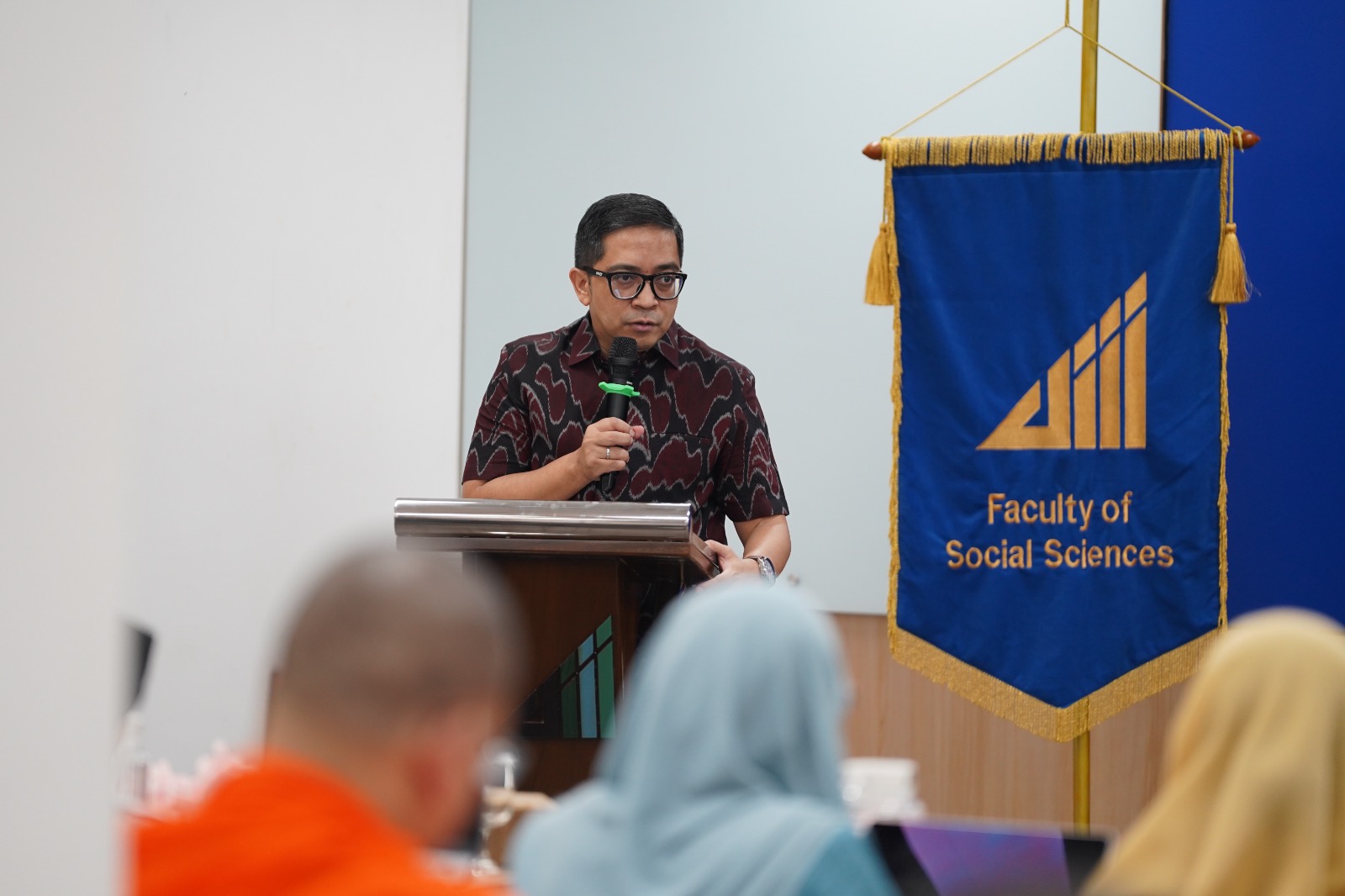
Dr. Philips J. Vermonte, Dean of the Faculty of Social Sciences at UIII, situated the conference within UIII’s broader mission as a graduate hub for intercultural understanding. “UIII now hosts graduate students from over 40 countries. Our students come from Africa, South Asia, Southeast Asia, Central Asia, even Latin America and the U.S. That diversity makes UIII a living laboratory for peacebuilding through education.”
Following the success of the conference, the event continues with a curriculum review of the KAICIID International Fellows Program and the preparation of a post-conference publication, including a book featuring selected papers to enrich future interreligious dialogue efforts in Southeast Asia.
The conference reflected the mutual commitment of UIII and KAICIID to fostering interreligious and intercultural understanding. With a shared focus on dialogue, inclusion, and peacebuilding, both institutions contribute in their respective ways to strengthening the foundations for more cohesive and respectful societies in Southeast Asia and beyond.
Universitas Islam Internasional Indonesia